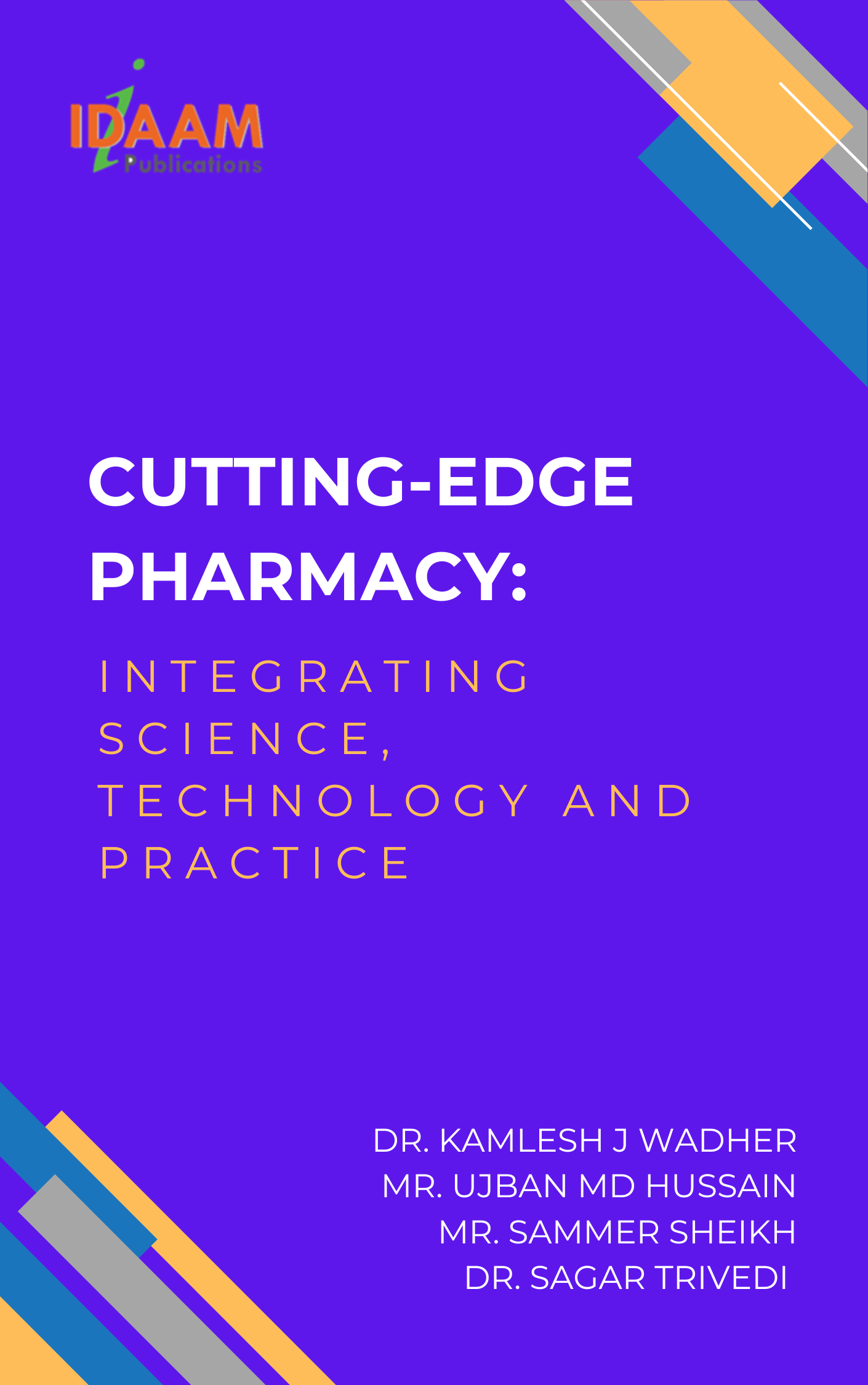
Cutting-Edge Pharmacy: Integrating Science, Technology, and Practice
(The book will be published with an ISBN)
Submit chapter abstract (250-300 words) along with table of content to books.idaampublications@gmail.com
About The Book:
This edited volume examines the evolving role of pharmacy in an era of rapid healthcare transformation. Bringing together contributions from leading researchers, practitioners, and industry experts, it bridges the gap between scientific discovery, technological innovation, and practical application in pharmaceutical sciences. Covering key themes such as nanomedicine, personalized medicine, AI in pharmacy practice, herbal therapeutics, global regulations, and patient-centered care, the book highlights how innovation is reshaping the field. By emphasizing collaboration, ethics, and patient outcomes, it provides a forward-looking resource for academics, professionals, students, and policymakers who aim to understand and shape the future of pharmacy.
Tentative Table of Contents:
Part I: Foundations and Scientific Advances
- Chapter 1: Introduction: The Changing Landscape of Pharmacy
(An overview of the evolving role of pharmacy in modern healthcare, including key challenges, global trends, and the impact of scientific and technological progress on the field).
- Chapter 2: Drug Discovery and Development: New Pathways and Strategiesy
(Examines innovative approaches in early-stage drug discovery, including computational methods, AI-driven screening, and novel therapeutic targets).
- Chapter 3: Nanotechnology and Smart Drug Delivery Systems
(Focuses on nano-carriers, liposomes, and polymer-based delivery systems that enhance bioavailability, targeting, and controlled release of drugs).
- Chapter 4: Pharmacogenomics and Precision Medicine
(Explores how genetic variability influences drug response, leading to personalized treatments and reduced adverse drug reactions).
- Chapter 5: Biopharmaceuticals and Biosimilars in Healthcare
(Discusses therapeutic proteins, monoclonal antibodies, and the growing role of biosimilars in affordable patient care).
Part II: Integrating Traditional and Emerging Technologies
- Chapter 6: Herbal and Natural Medicines in Pharmacy Innovation
(Covers scientific validation of traditional medicines, standardization methods, and integration into modern pharmaceutical practice).
- Chapter 7: Artificial Intelligence and Machine Learning in Pharmacy
(Analyzes applications of AI in drug discovery, predictive toxicology, clinical trials, and pharmacy automation).
- Chapter 8: Digital Health Tools and Telepharmacy
(Examines the use of mobile health apps, teleconsultations, wearable devices, and digital records in pharmacy practice).
- Chapter 9: 3D Printing in Pharmaceutical Manufacturing
(Highlights advances in personalized drug printing, customized dosage forms, and challenges of scalability and regulation).
- Chapter 10: Regulatory Affairs and Global Pharmaceutical Standards
(Provides an overview of regulatory frameworks, international harmonization, and challenges of bringing innovative drugs to market).
Part III: Clinical Practice, Safety, and Sustainability
- Chapter 11: Clinical Pharmacy: Patient-Centered Care Models
(Discusses the pharmacist’s role in clinical decision-making, medication therapy management, and interprofessional collaboration).
- Chapter 12: Pharmacovigilance and Ensuring Drug Safety
(Focuses on adverse drug reaction monitoring, risk-benefit assessment, and digital pharmacovigilance tools).
- Chapter 13: Innovations in Pharmaceutical Formulation
(Covers advances in controlled release systems, biologics formulation, and innovative excipients for improved drug stability).
- Chapter 14: Green Chemistry and Sustainability in Pharmacy
(Explores environmentally friendly synthesis, waste reduction in pharmaceutical production, and the future of eco-pharmacy).
- Chapter 15: Ethical and Legal Challenges in Modern Pharmacy
(Addresses dilemmas in clinical trials, patient data privacy, drug pricing, and equitable access to medicines).
Part IV: Education, Innovation, and Future Directions
- Chapter 16: Pharmaceutical Education and Workforce Development
(Evaluates current trends in pharmacy education, skill gaps, and training strategies for the digital age).
- Chapter 17: Entrepreneurship and Start-Ups in the Pharmaceutical Sector
(Covers the rise of pharmaceutical start-ups, innovation ecosystems, and pathways for commercialization of research).
- Chapter 18: Big Data and Real-World Evidence in Drug Research
(Discusses how real-world data, electronic health records, and big data analytics enhance clinical decision-making and drug development).
- Chapter 19: Public Health Pharmacy: Expanding Access and Impact
(Explores the pharmacist’s role in vaccination, chronic disease management, and improving access to medicines in underserved regions).
- Chapter 20: Future Directions: Integrating Science, Technology, and Practice
(Synthesizes the insights from previous chapters to envision the future of pharmacy, highlighting opportunities for innovation, collaboration, and sustainable healthcare solutions).
[Note: Strikethrough chapters (-) are already been taken by other authors].
About Editors:

Dr. Kamlesh J Wadhe
Principal,
K. D. K College of Pharmacy and Research

Mr. Ujban MD Hussain
RTM Nagpur University, Department of Pharmaceutics, Nagpur

Mr. Sammer Sheikh
RTM Nagpur University, Department of Pharmaceutics, Nagpur

Dr. Sagar Trivedi
G. H Raiosoni Sai Kheda
Important Dates:
• Abstract Submission: by 25ᵗʰ November 2025
• Abstract Acceptance: by 30ᵗʰ November 2025
• Full Chapter Submission: by 1ˢᵗ March 2026
• Full Chapter Acceptance: by 15ᵗʰ March 2025
Chapter Processing Charge (CPC):
A Chapter Processing Charge (CPC) is required to cover the costs of typesetting, processing, and global online hosting. All corresponding authors will be asked to pay their publication charges upon acceptance of abstract as Chapter Processing Charge USD 100 (for overseas authors), INR 3000 (for authors from India) per published chapter (Maximum 3 Authors per Chapter).






























